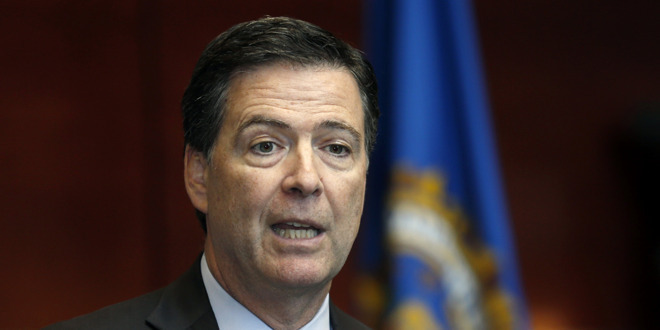FBI Director James Comey on Wednesday said the U.S. government will continue to wage legal war with tech companies to gain access to encrypted devices, intimating that such measures are weakening terror organizations like ISIL.

At an FBI briefing, Comey said gaining privileged access to passcode locked -- or otherwise protected -- devices is an important national security concern as encryption is now "essential tradecraft" of terror groups, reports Reuters. He suggested FBI investigations, including those that involve digital evidence retrieval, are helping dissuade Americans from joining militant groups.
"I think the ISIL brand has lost significant power in the United States," Comey said, adding that his agency currently has more than 1,000 ongoing investigations into individuals in danger of being radicalized.
The Department of Justice sparked contentious debate over rights to personal encryption when it requested Apple cooperate in accessing deceased San Bernardino terror suspect Syed Rizwan Farook's iPhone in February. Apple, citing the potential fallout of creating a software workaround to installed iOS protections, resisted the warrant. At the behest of an All Writs Act motion, a federal magistrate judge consequently compelled Apple's compliance, but the court action stopped short of reaching an initial evidentiary hearing, as an effective workaround presented by an outside party prompted the FBI to withdraw its case in an eleventh hour decision.
According to today's report, the FBI is attempting to apply the iPhone exploit to other cases, but has so far been unsuccessful. Comey said much the same last month when he revealed the forensics tool only applies to iPhone 5c models and older. The FBI has unlocked some 500 devices since October, though none are the same configuration as Farook's iPhone 5c running iOS 9.
Comey did not elaborate on upcoming litigation, but the FBI has yet to notch a win when it comes to AWA motions. The agency appears to be focusing on Apple, lodging -- and ultimately withdrawing -- two high-profile court cases in San Bernardino and a similar AWA action in New York.


